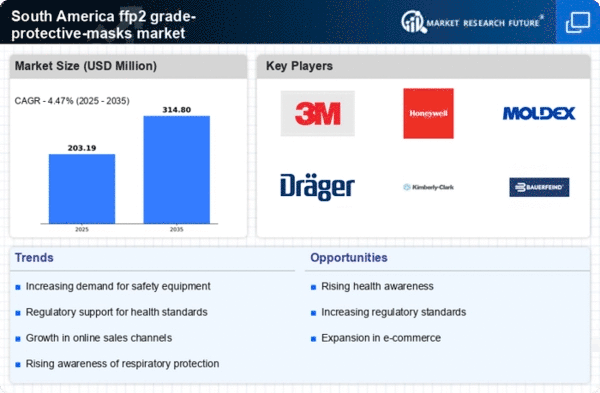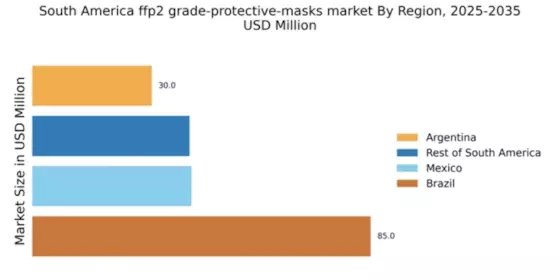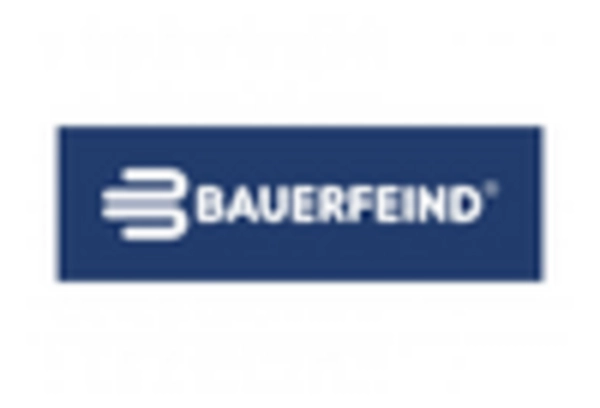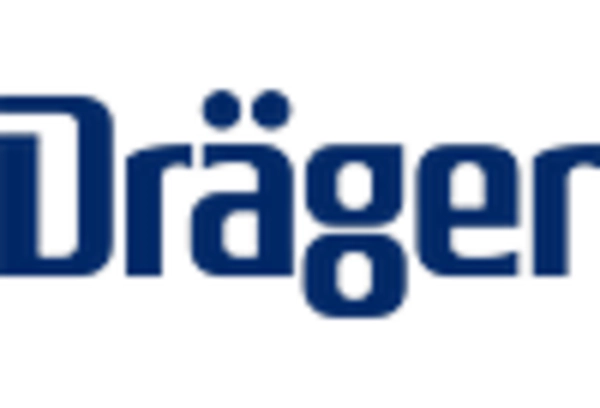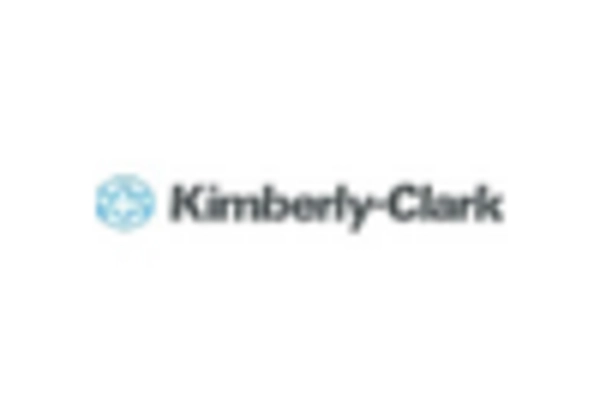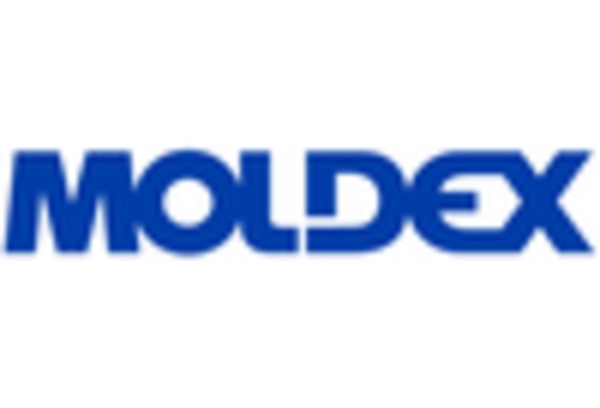Rising Health Awareness
The increasing awareness of health and safety among the population in South America appears to be a significant driver for the ffp2 grade-protective-masks market. As individuals become more conscious of airborne diseases and pollutants, the demand for high-quality protective masks is likely to rise. Recent surveys indicate that approximately 65% of consumers in urban areas prioritize health safety measures, which includes the use of ffp2 masks. This trend is further supported by educational campaigns from health organizations, emphasizing the importance of respiratory protection. Consequently, manufacturers are responding to this heightened awareness by enhancing their product offerings, which may lead to a more competitive market landscape.
Industrial and Occupational Safety
The emphasis on industrial and occupational safety in South America is a notable driver for the ffp2 grade-protective-masks market. Various sectors, including construction, manufacturing, and healthcare, are increasingly adopting stringent safety protocols to protect workers from respiratory hazards. This shift is reflected in the rising procurement of ffp2 masks, as companies aim to comply with occupational health standards. Reports suggest that the industrial sector's demand for protective masks has surged by around 40% in recent years, indicating a robust market potential. As businesses prioritize employee safety, the ffp2 masks are becoming a staple in workplace safety equipment.
E-commerce Growth and Accessibility
The rapid growth of e-commerce platforms in South America is transforming the distribution landscape for the ffp2 grade-protective-masks market. With more consumers turning to online shopping for convenience and accessibility, the availability of ffp2 masks through digital channels is expanding. This trend is particularly pronounced in urban areas, where online sales of protective equipment have increased by approximately 50% over the past year. E-commerce not only facilitates easier access to a variety of mask options but also allows consumers to compare prices and quality, thereby driving competition among suppliers. As a result, the market is likely to witness a diversification of product offerings and pricing strategies.
Government Regulations and Standards
Government regulations and standards play a crucial role in shaping the ffp2 grade-protective-masks market in South America. Regulatory bodies are increasingly implementing stringent guidelines to ensure the quality and safety of protective equipment. For instance, the introduction of mandatory certifications for ffp2 masks has led to a surge in compliance among manufacturers. This regulatory environment not only enhances consumer trust but also drives innovation within the industry. As of November 2025, it is estimated that compliance with these regulations has increased market participation by approximately 30%, as new entrants seek to capitalize on the growing demand for certified protective gear.
Public Health Initiatives and Campaigns
Public health initiatives and campaigns are significantly influencing the ffp2 grade-protective-masks market in South America. Governments and health organizations are actively promoting the use of protective masks as part of broader health strategies. These campaigns often include distribution programs aimed at vulnerable populations, thereby increasing the visibility and acceptance of ffp2 masks. As of November 2025, it is estimated that such initiatives have led to a 25% increase in mask usage among the general public. This proactive approach not only enhances public health outcomes but also stimulates market growth as demand for ffp2 masks continues to rise in response to these efforts.


